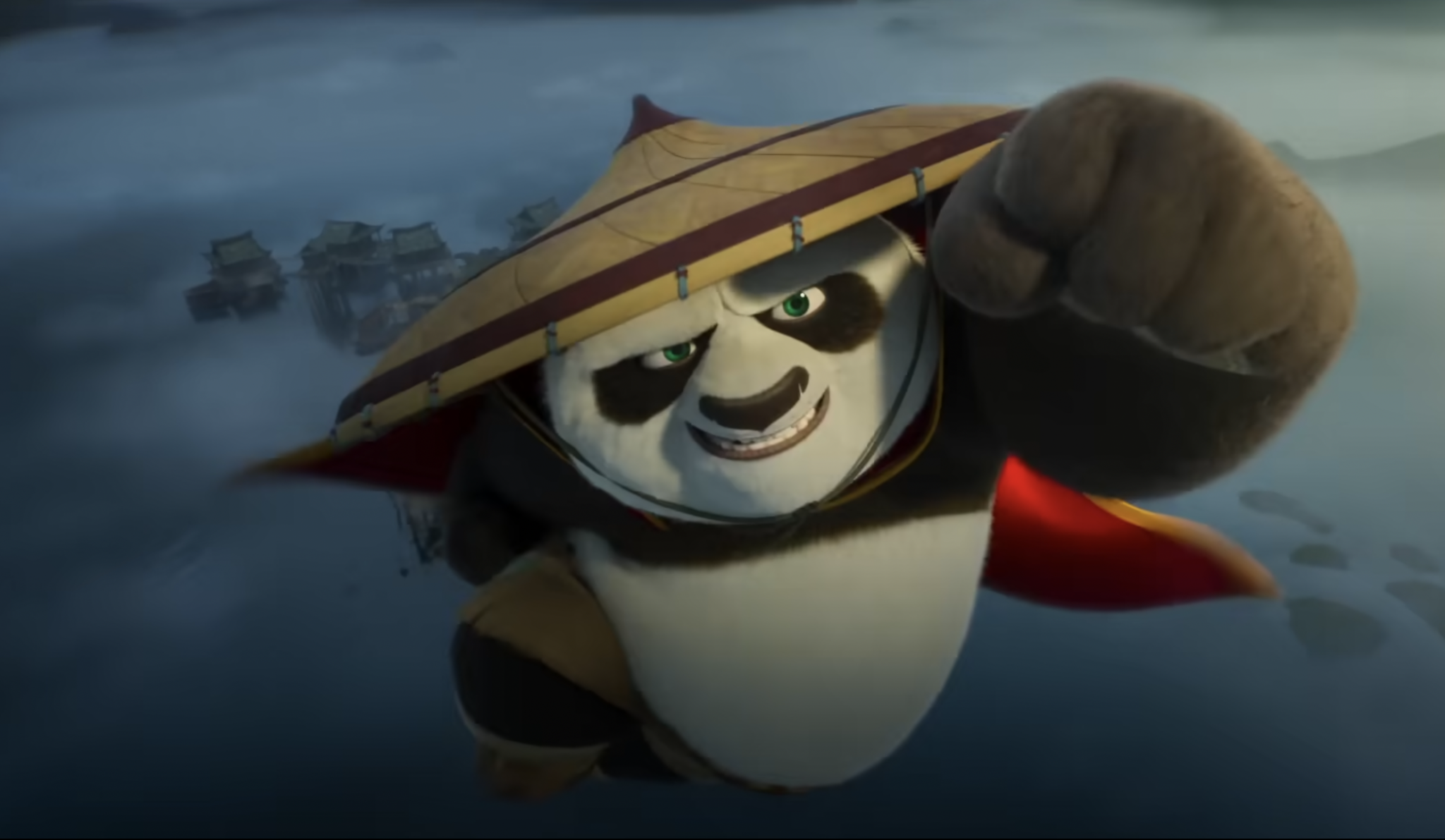After nearly 10 years, Jack Black reprised his iconic role as the butt-kicking yet people-pleasing Po, otherwise known as the Kung Fu Panda, in the fourth installment of the adored franchise, which hits theaters Friday.
Po battles with himself internally — and later even physically — in an epic hero journey that results in him embracing change and taking on a new leadership role in the Valley of Peace.
Sixteen years after the original film’s release, Po still has a lot to learn. Just like the first film’s audience, he has grown from his many battles, both internal and physical.
Kung Fu Panda 4 introduces Awkwafina’s Zhen, a sarcastic and sneaky fox that becomes an unexpected guide to Po on a journey reminiscent of Shrek and Donkey. Po’s good-guy approach to life and battle balances with Zhen’s hardened and cynical exterior, resulting in a refreshing comedic duo added to the Dreamworks cinematic universe.
Viola Davis voices The Chameleon, a small but mighty shape shifting sorcerer. Embodying the film’s overall theme of change, The Chameleon might be able to change her outside appearance, but she’s unable to learn the value of changing one’s inner self.
The film focuses on The Chameleon’s attempt to obtain the Staff of Wisdom by bringing back every villain that Po has previously battled from the spirit realm to absorb their kung fu powers.
The animation style felt elevated and aesthetically gorgeous while still honoring the previous films by continuing with the dynamic comic book-esque fight transitions.
[‘Dune: Part Two’ is this year’s blockbuster messiah]
With new characters and higher stakes, some elements that made the original and its predecessors so strong were erased. Sorry to the long-time fans, but the “Furious Five” — Tigress, Viper, Monkey, Mantis and Crane — did not return in this film. It would have been legendary to pay homage to these characters by having a proper reunion of the cast.
The trailer and poster also made it seem as though Tai Lung, the effortlessly cool villain of the franchises’ first installment, would have more of an impact in this plot. He instead didn’t get the screen time that might have been expected, almost as though he was used as a marketing ploy.
However, the idea that new characters were favored over recurring ones adds to the film’s central theme that change doesn’t always have to be a bad thing.
New characters such as Zhen and The Chameleon and smaller voice-acting cameos made by Ke Huy Quan, Ronny Chieng and Mr. Beast drove the plot to a new direction.
In many ways, the film pays homage to the first three movies. It balances humor, action and wisdom, and manages to reference all of Po’s past opponents. The result? A melting pot experience of past and present that ultimately favors the present.
The theme of change often feels on the nose and is created with a plethora of metaphors, many of which being food related. The message is spoon-fed to the audience, but with the target demographic being children, this makes sense.
[New LGBTQ+ book club provides space for queer representation in literature]
Consistent with the rest of the franchise, there are many jokes at the expense of Po’s love of food. Po himself is always the one to make these self-deprecating slights, which never feel nefarious, but it does get repetitive.
Despite the lack of a “Furious Five” reunion, the otherwise star-studded voice cast kept the plot engaging during the perfect hour and 34 minute run time.
While the movie may have focused on the new instead of the old more than some loyal fans may have liked, it still takes the audience on a nostalgic and enjoyable adventure with a surprising amount of wisdom dispelled along the way.
Perhaps one of the best aspects of the film, though, was Black’s hard rock cover of Britney Spears’ “…Baby One More Time” during the end credits. That needs to go up on Spotify immediately.



